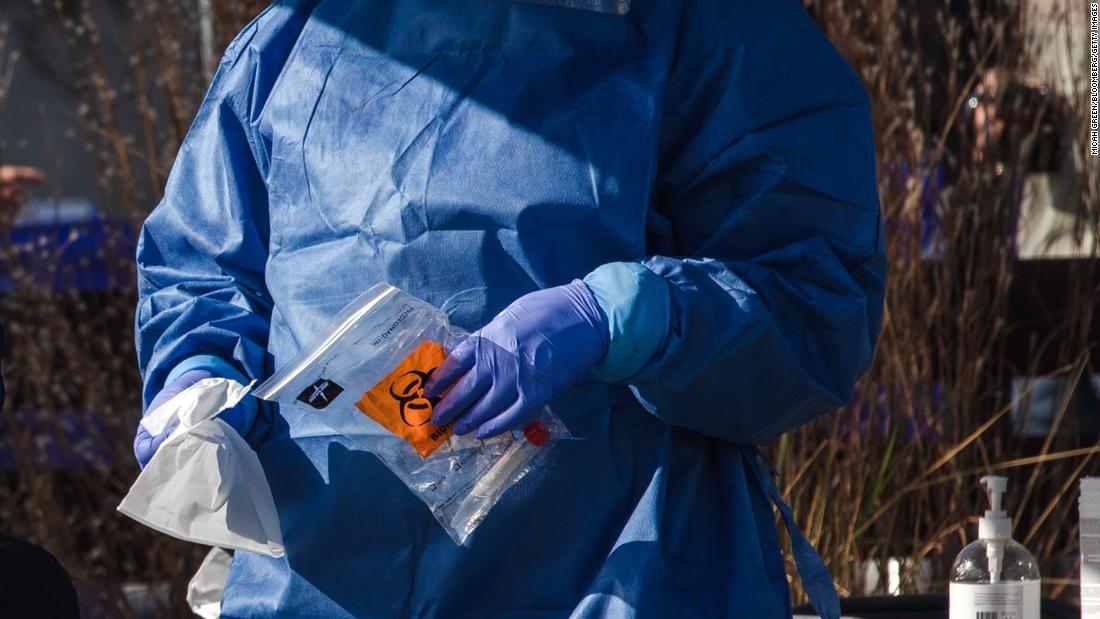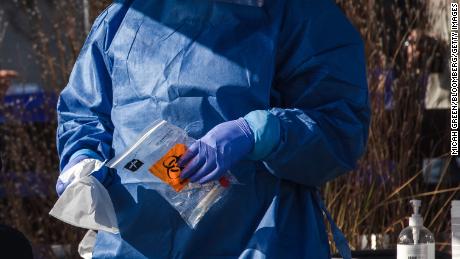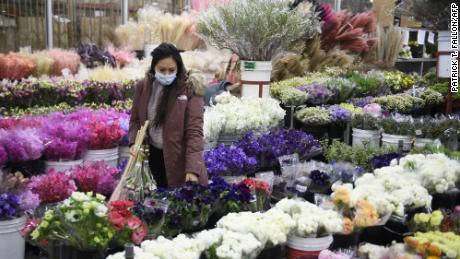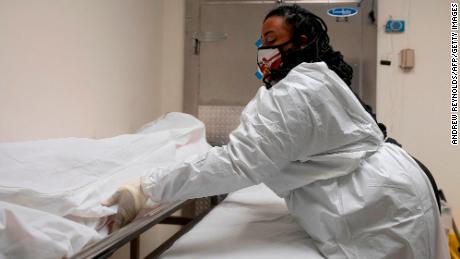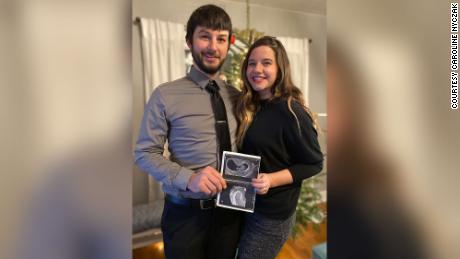The US is seeing a 29% decline in new cases compared to this time last week — but there’s a major caveat
According to a CNN analysis of data from Johns Hopkins University, the US is seeing a 29% decline in new Covid-19 cases compared to this time last week, the steepest one-week decline the US has seen during the pandemic.
Several states impacted by winter storms are seeing large declines in new cases this week, per Johns Hopkins data, including Texas, where cases are down 56% compared to last week.
‘Racing ahead of the variant’
“I spoke to all the pharmaceutical companies and scientists, and they all say the same thing: Even if these vaccines diminish a little bit, they will be able to continually update them,” Slavitt, who is responsible for the Covid-19 response, told CNN’s Chris Cuomo Thursday.
With more than 1,500 cases of worrisome variants reported in the US, officials have been racing to administer vaccines quickly to get ahead of further mutations, with about 57.7 million doses administered so far across the country, according to the US Centers for Disease Control and Prevention.
“Even though the numbers look promising in terms of new cases going down, that’s misleading,” said Dr. Peter Hotez, dean of tropical medicine at Baylor College in Houston, pointing to the UK Covid-19 variant. “I think we’re about to get hit very hard, so we have to race ahead of the variant.”
New research out of Israel and Canada has found that only a single dose of the Pfizer/BioNTech’s vaccine offers significant protection against the virus, but Slavitt stressed that does not mean people should skip the second dose.
“We don’t know how long or how durable that benefit is without the booster,” he said. “We don’t know how effective it is against variants.”
US will have to work ‘double time’ after winter weather
So far, more than 41 million people have received at least one dose of the vaccine, and more than 16 million have received two doses, CDC data shows. But that means just 4.9% of the US population has been fully vaccinated.
A number of states have reported delays in vaccine deliveries, forcing providers to cancel or reschedule appointments for vaccinations.
The Federal Emergency Management Agency (FEMA) on Thursday said more than 2,000 vaccine sites were located in areas suffering from power outages. And when a site is closed, Slavitt said, officials don’t want to ship a vaccine there
“If an administration site is closed, we don’t want to ship a vaccine, because as you know, they can’t sit for more than 72 hours,” Slavitt told CNN. In the meantime, he said, vaccines will be kept “safe and sound.”
Fortunately, none of the vaccines that need to be stored at specific temperatures have been spoiled this week to officials’ knowledge, he said, and everyone is working to ensure vaccines get into people’s arms and if there are backlogs, that the vaccines are properly stored.
“We’re just going to have to ask everybody in the country to work double time next week,” Slavitt said, echoing Fauci. “Presuming the weather improves, that’s going to mean longer appointment hours, it’s going to mean more shipping hours and we’re going to ask everybody to do their part and pull together.”
Hotez with Baylor believes the vaccine effort has been set back by about a week, he told CNN Friday.
Dr. Marc Boom, president and CEO of Houston Methodist Hospital, told CNN his hospital system was able to resume vaccinations on Thursday.
“We’re back on track,” he told CNN Friday morning. “For us, we lost about two days, but we’ll catch up in the next two, three days,” he said, adding, “It’ll be a little slower than usual, but we’ll catch up.”
Black and Hispanic people are getting fewer vaccinations
The World Health Organization will launch a new declaration Friday, focusing on vaccine equity, the group’s director general, Tedros Adhanom Ghebreyesus, said during a news briefing Thursday.
While Tedros’ declaration will focus on vulnerable groups and small island states with less bargaining power than larger countries, inequity has already been a factor in the US.
Kaiser Family Foundation (KFF) researchers analyzed state-level data for the 34 states that collect demographic information on Covid-19 vaccinations as of February 16.
In most of those states, Black and Hispanic people have received a smaller share of vaccinations compared to their share of cases, deaths and percentage of the population, the researchers noted. The opposite is true for White people in most states.
In Texas, for example, Hispanic people account for 42% of coronavirus cases, 47% of Covid-19 deaths and 40% of the state’s population — but they have gotten just 20% of vaccinations.
Among 27 states that report ethnicity data for those who have received at least one dose of the vaccine, White people have been vaccinated at a rate three times higher than Hispanic people and twice as high as Black people.
The KFF team noted that some states don’t record the race or ethnicity of those vaccinated.
Researchers found higher rate of infection in pregnant women
The infection rate in pregnant women in the study was 13.9 out of every 1,000 deliveries, compared to an overall rate of 7.3 out of 1,000 for 20 to 39-year-olds in the state.
The higher infection rates “may be due to the over-representation of women in many professions and industries considered essential during the COVID-19 pandemic — including healthcare, education, service sectors,” lead author Dr. Erica Lokken said in a news release.
“Pregnant women are written out of the allocation prioritization in about half of U.S. States. Many states are not even linking their COVID-19 vaccine allocation plans with the high-risk medical conditions listed by the [Centers for Disease Control and Prevention] —which include pregnancy,” Waldorf said.
A Pfizer/BioNTech vaccine trial for pregnant women gave their first participants doses on Thursday. The doses were administered to US participants, though the trial will be conducted in nine countries: the United States, Canada, Argentina, Brazil, Chile, Mozambique, South Africa, UK and Spain.
The company said the trial is designed to evaluate the vaccine in pregnant women, but also their infants, who will be monitored for safety and for the transfer of potentially protective antibodies until they’re about 6 months old.
Pfizer/BioNTech also expects to expand trials to children ages 5 to 11 in the next couple of months, according to a company news release.
CNN’s Christina Maxouris, Michael Nedelman, Deidre McPhillips, Andrea Diaz, Keith Allen, Mirna Alsharif, Naomi Thomas and Amanda Sealy contributed to this report.
![]()


